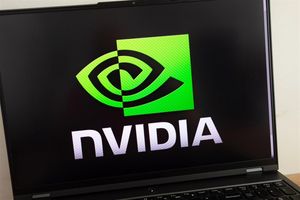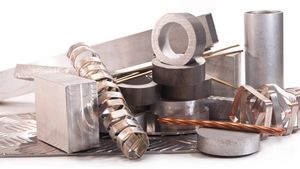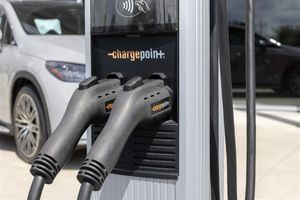Financial News
Nunam: Meet the Team Unlocking the Socioeconomic and Environmental Potential of Used Batteries
By Jessica Kelly
SOURCE: Cisco Systems Inc.
DESCRIPTION:
Now that the Cisco Global Problem Solver Challenge 2021 winners have been officially announced, we are excited for you to learn more about each winning team and the story behind each innovation. The Cisco Global Problem Solver Challenge is an annual competition that awards cash prizes to early-stage tech entrepreneurs solving the world’s toughest problems. Now in its fifth year, the competition awarded its largest prize pool ever, $1 million USD, to 20 winning teams from around the world.
Nunam unlocks the socioeconomic and environmental potential of used batteries by repurposing them to provide affordable power for those experiencing energy poverty. Nunam earned one of our US$10,000 Fourth Runner-Up prizes. We spoke with Veeresh Anehosur, Nunam’s business development manager, to learn more about the company’s story, inspiration, and innovative technology.
What problem is your technology solution trying to solve?
Veeresh: Reliable, affordable access to energy is a mandate for progress. Yet in many countries, including India, this access is challenged by the heterogeneity of geography, fragmented availability of information on energy sources (for both end users and decision makers), and restrictive socio-cultural mores. Concurrently, there is global uptake of Lithium batteries for transport (electric vehicles) as a measure to substantially reduce pollution. This rising use of electric vehicles (EVs), however, will lead to a stockpile of EV discarded batteries with 80 percent life.
Nunam energy-storage systems (NESSs) are comprised of second-life batteries (SLBs) repurposed from those discarded by EVs. NESSs made of SLBs are scalable, offer plug-and-play access to energy (much like smart security cameras and thermostats), allow for IoT-enabled remote maintenance, and can exponentially increase energy penetration into rural, forested, and remote areas.
Can you explain how your solution works?
Veeresh: Nunam provides the technology to give batteries a second life. We offer repurposed LIBs with high energy-to-weight rations, low self-discharge rates, no memory effect, and 30-70 percent reduced storage costs, contributing to the circular economy and reducing the demand for virgin minerals.
We’ve created mathematical models to assess battery health and safety, using data from IoT systems to understand battery aging. After their first life, we take up batteries from various sources. Those that pass our rigorous quality tests are integrated into NESSs, which we test for safety and performance. Our NESSs give customers reliable, safe, sustainable energy with real-time battery-usage data. At end of life, NESS packs are recycled back to raw materials for new battery production.
Nunam’s repurposed batteries cost half as much as new and extend life by six years or more. Our systems in rural India are enabling people’s livelihoods and education; for example, powering 50 small shops in Uttar Pradesh and a tribal skills-development center in Karnataka. Currently, we are working with Audi (Germany) to reuse their EV batteries.
What inspired you to develop this solution?
Veeresh: First, consider access to energy — or lack thereof. One of our co-founders undertook a rail trip to understand the barriers to livelihoods and wellbeing across communities in India. The lack of access to reliable sources of energy can be observed in places at a radial distance from the technical hub that is Bangalore.
Access to energy transforms lives within households and catalyzes social and community projects, from education and healthcare to general infrastructure support. However, though renewables (like solar) are clean, the attendant battery cost (40 percent of the total) hamper its widespread use. Using Nunam’s repurposed batteries will significantly cut costs and potentially enable increased use of solar energy.
Additionally, consider the environment. For example, when plastic was introduced, the environmental issues that resulted from its widespread use were not anticipated. In the case of batteries, recycling is currently a viable option, and in anticipating the likely stockpile of used batteries, Nunam is proposing a solution that will utilize the battery waste and eventually subsidize the cost of recycling.
How will winning a prize in the Cisco Global Problem Solver Challenge help you advance your business?
Veeresh: This whole ecosystem is at nascent stage — globally, there are just a handful of people working in this space. Therefore, recognition from a world-renowned company like Cisco validates our technology, which helps us build a trusted brand to have a greater global impact and advance the commercialization of our solution.
Do you know what you will use the prize money for specifically?
Veeresh: First, we’ll invest in more deployments beyond our initial pilots. Second, we’ll enhance our testing infrastructure.
Why did you decide to start your own social enterprise versus going to work for a company?
Veeresh: EV use in India is slated to rise by 35 percent in 2030, while access to energy continues to be a challenge. Using the waste from EVs to enable energy access is a unique formulation that will sustain a value chain of stakeholders and end users, hence we decided to focus on clarifying this solution.
By working as a standalone endeavor, we are able to move as quickly as possible and see the impact of our work — bringing energy to people who lacked access previously, changing their lives for the better — it’s amazing to realize, and this is what drives us. That said, while Nunam is evolving, our impact will always be limited by, for example, the number of batteries we can repurpose as a single enterprise. Therefore, we are working to build a platform that enables other companies to build energy solutions themselves, to maximize impact by bringing more organizations into this ecosystem.
What advice do you have for other social entrepreneurs?
Focus on a cause that has long-term societal impact – like climate change – with projects that have a multifold positive effect on the community at large.
KEYWORDS: NASDAQ: CSCO, Nunam, Cisco
More News
View More





Quotes delayed at least 20 minutes.
By accessing this page, you agree to the following
Privacy Policy and Terms Of Service.




